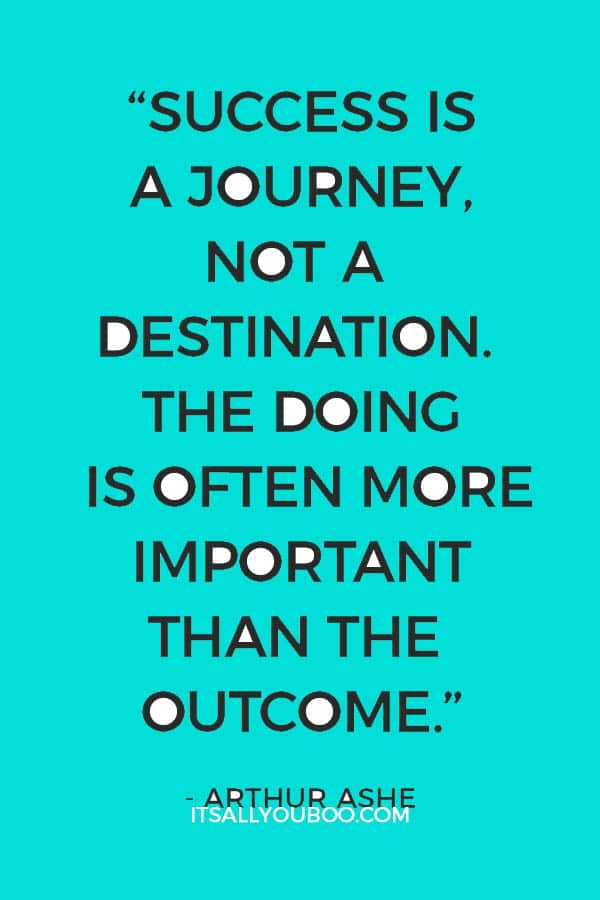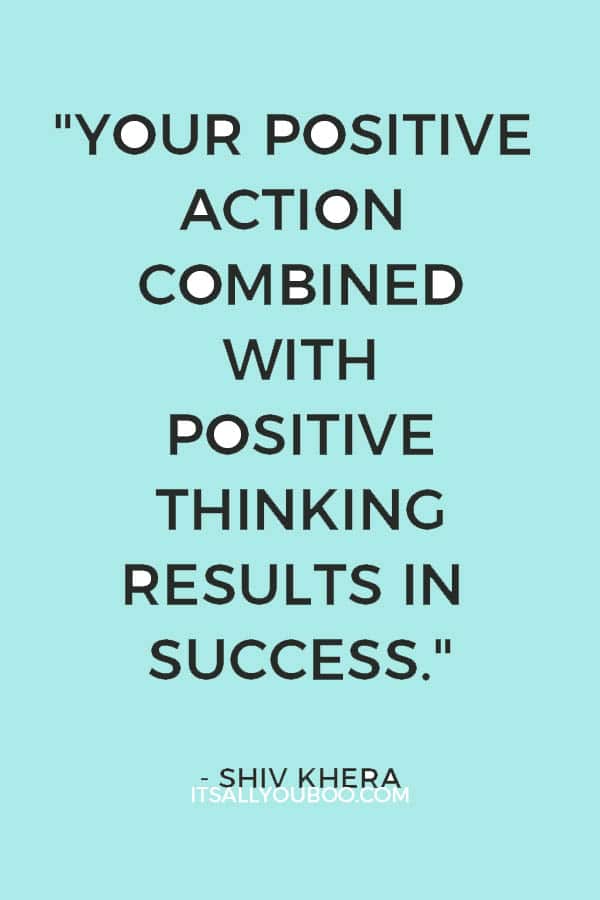How do you define success in your own words?
What does success truly mean to you?
What does it mean to be successful? Here are 3 tips by @EllyMcGuinness for discovering what success means to you. #success #goals #mindset
You may have some clear ideas of the goals you want to achieve right now.
Maybe you’ve written up some health and fitness goals, career goals, or general life goals. That’s an amazing first step towards getting clear about what you want so you can get ready to take action and live a happier and more fulfilled life.
No matter what stage you are at in terms of reaching your goals, it’s important that you take a step back to really consider whether you’ve chosen the right ones.
Are your goals a true definition of success for you? Do your goals define success in your own words?
Table of Contents:
It can be easy to get caught up with what society or friends and family deem as success. In the meantime, you can lose sight of the things that are really important to you personally. The result can be that you:
- Lose sight of enjoying the journey to reach your goal
- Get hugely disappointed and discouraged if you don’t reach your goals
- Feel dissatisfied when you do reach your goals because they weren’t good definitions of success for you personally
Today I want to highlight three amazing tips that will really help you define success in your own words. You can consider these when you’re either setting or reassessing your goals. They may change your perspective on what success means to you and I hope they will allow you to enjoy the journey along the way.
THIS POST MAY CONTAIN AFFILIATE LINKS.
IF YOU MAKE A PURCHASE FROM THESE LINKS, I MAY EARN A SMALL COMMISSION.
CLICK HERE FOR MY FULL DISCLAIMER STATEMENT.
Define Success in Your Own Words by Writing Your Goals for You
The absolute most important factor in successful goal setting (in my opinion) is that your goals must be important to YOU.
That may sound obvious. However, in the almost 20 years that I have helped people reach their health and fitness goals, I have regularly come across goals that have been set which are not important to the person setting them.
It usually takes a fair bit of questioning on my part to find out if you haven’t managed to define success in your own words. It’s not necessarily something that you’ll realize on a conscious level. Maybe you’ve decided on a goal you want to set. However, upon questioning it could become evident that the goal has stemmed from societal expectations, or perhaps something that a friend or family member has said.
Have you made a goal setting mistake like this?
Let’s take a look at a couple of examples of goals that tell me you haven’t managed to define success in your own words.
A friend wants to enter a 10km run and she desperately wants you to enter with her, so you agree. You then tell me the 10km run event is your goal. However, when I delve deeper I realize it was really your friend’s goal. You simply wanted to support her and not miss out on the fun.
The reality is that you probably haven’t gone through the full thought process of setting that goal and planning to achieve it. You’ll be more likely to give up on the goal along the way and might even lose interest in the goal setting and getting process altogether. Bear in mind that there are other ways you could support your friend to achieve her goal aside from adopting the goal yourself.
👉🏽 RELATED POST: 56 Experts Share Top Goal Setting Mistakes to Avoid
Another example of a goal that is not important to you could be centered on a comment made by someone else. Maybe a family member casually says a statement that includes the words “when you fit back into your pre-pregnancy clothes”. Upon hearing this comment, you may sub-consciously set the goal to fit back into your pre-pregnancy clothes, even if it is something that is not really important to you.
External pressures and comments like this can form the basis for goals that are defined by someone else’s picture of success.
So overall, take a close look at the goals you have set for yourself and check that they are really important to YOU. Check that they define success in your own words and that they haven’t been strongly influenced by what someone else wants or expects.
#2. Understand Your Own Intrinsic Motivations to Define Success in Your Own Words
Closely related to the previous point is the requirement for your goals to be meaningful to you on a deep level. I refer to this as knowing your ‘why’.
Understanding the ‘why’ behind your goals is so important because it’s what’s going to drive you forward to actually achieve them. It’s the emotional part of your goal and is what is going to provide you with intrinsic motivation to push forward and be happy and excited about the journey.
Intrinsic motivation is the type of motivation that comes from within. It helps you stick with “goal getting” in the long run. Extrinsic motivation, on the other hand, is a more superficial type of motivation. Examples include “rewards” for reaching mini-milestones. Things like these might help you push on from time to time. For long-term success (whatever that may mean to you) you’re going to need some important internal drivers.
To find out your “why” and take another step towards being able to define success in your own words, look at the goal you have set. Ask yourself “why is that important to me” at least three or four times before you’ll get your answer.
👉🏽 RELATED POST: 54 Experts Share How to Get Motivated
How to Incorporate Your “Why” into Your Goal Setting Process
Your goal might be: “I want to lose 10kg”
Ask yourself why: “Because I want to feel fitter and healthier”
This is not strong enough. Ask yourself “why” again: “Because I want to be able to keep up with my kids and not have any more health scares.”
Getting closer now…ask yourself again: “I want to lose 10 kg because when I had a heart scare a few months ago I was terrified that my kids might have to grow up without a mom. I know there are many steps I can take to lead a fitter, healthier life and I’m going to make choices that will allow me to live this life to the fullest and have plenty of fun with my kids along the way.”
Do you see how this person’s “why” will really help them drive forward and do what’s important to them? It’s not about a simple number on a scale, but entirely about the reason behind the goal.
👉🏽 RELATED POST: Why You Need to be Setting Intentions Instead of Goals
Are You Figuring Out What’s Really Important Here?
With a strong enough “why”, the original goal can sometimes become irrelevant too. The person with the 10 kg weight loss goal may, in fact, lose less weight than this but at the same time reach their “goal”. This is because it was really defined by something else much deeper. The intrinsic, emotional nature of the goal really shows you have been able to define success in your own words.
A 10kg weight loss goal could be achieved via unhealthy practices that are neither sustainable nor enjoyable in the long run. This would defeat the actual “why” behind the goal because it doesn’t achieve the part that actually holds meaning to them. In the case of our example it is to “…lead a fitter, healthier life….live life to the fullest and have plenty of fun…” Ultimately, the goal here is not really about the 10kg, but this can become a welcomed benefit from an intrinsically formed goal.
#3. Be Clear on Your Definition of Success in Life
My third tip for really being able to define success in your own words is about the “big picture” of your life. This is about really getting clear on your long-term vision and picture of success. Do your short-term and long-term goals fit into your definition of success in life?
The goals you set for yourself should be relevant to the vision you have of the life you want to live. If you set goals that only have a short term focus and are separate from your overall vision you might find you simply revert back to your “old behaviors” once the goal has been “achieved”.
👉🏽 RELATED POST: How to Make a Vision Board that Works
As an example, you could be working towards a short term goal of fitting into your wedding dress. This could very well be a valid goal that is important to you and includes some intrinsic motivation factors. But does it form part of an overall long term lifestyle goal for you? Or will you revert back to your old behaviors once your goal has been achieved (and gradually lead yourself back to the way things were originally?).
What is Success in Life?
Look at all the areas of your life to create your overall, long-term picture of success. Think about all the various aspects that will help you answer the question “what is success in life?” Once you really understand what success means to you, you will more easily be able to see whether your short and long-term goals align with your own definition of success in life.
Some areas to consider:
- What is your overall purpose in life? What will make you feel like you are leading a purpose-driven and meaningful life?
- How fit and healthy do you want to be? What are the things you want to be able to see, feel and do in relation to your overall health, fitness, and wellbeing?
- How do you define success in relationships in your life? What sort of partner, wife, husband, mother, father, friend, son or daughter do you want to be?
- What do you do to contribute towards your community? How do you “give back” to the world around you?
- What are your career goals? Financial goals? Where do you want to live and what do you want to spend your time doing?
- What is your idea of a “perfect” day?
These are some of the areas to consider when creating your overall, long-term vision. Feel free to include anything else that is important to you and exclude anything that isn’t important to you.
It’s Time For Action
Now that you know how to define success in your own words, it’s time to take action! Start by putting pen to paper and brainstorming:
Goals that are important to YOU…
Which are based on strong intrinsic emotional drivers (write yours down!)…
And are closely linked to your overall vision of success in life (brainstorm now what you really want!)
👉🏽 RELATED POST: How to Take Action When You Can’t Get Started
The Printable Slay Your Goals Guide
Ready to figure out what success means to you and to go after it? This ten-step guide helps you figure out your intentions, set goals and take action to achieve them.
Here’s to your health, happiness and achieving your own personal definition of success!
How do you define success in your own words?

More About Guest Contributor
Elly McGuinness has been inspiring people to make sustainable changes to their health, fitness, and lifestyle for almost 20 years. She offers online holistic health and fitness solutions to help people lead the fittest, healthiest life they can. She is a writer for a number of health and wellbeing publications, creator of the Holistic Health Highway, and is the published author of a holistic weight loss book.
Last Updated on July 11, 2021











